E-bike news: Treks Electra Gos Moped Style, Addmotor E-Trike and much more!

Some links may be affiliate links. We may be paid if you purchase something or take an action after clicking one of these options.
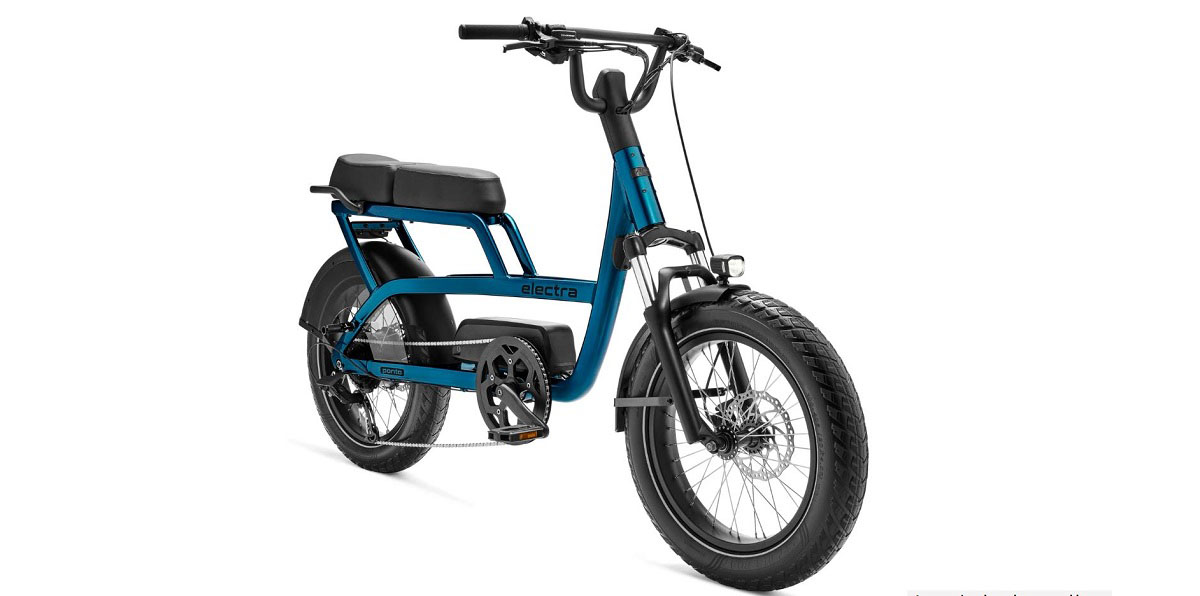

The well-known and very established US brand Trek caused a stir this week with the announcement of a moped-style e-bike. Okay, that was through its leisure and lifestyle division Electra, but it’s still a company that has always had a strong interest in classic and mainstream style “bicycle-like” bikes and e-bikes. So it’s perhaps a little surprising that the company is releasing a model that clearly follows in the footsteps of Super 73 and their moped-style e-bikes.
We’ve already conducted an extensive test of another major US brand associated with the sportier end of the e-bike spectrum that shifts focus in a similar way, in the form of Globe Haul ST from Specialized and were impressed by the high-quality features they gave their first “utility” e-bike. One wonders whether there will be more utility models from Specialized and Trek/Electra and how they will apply their impressive research and development resources in an area that is relatively new to both
In this week E-bike news:
- Electra Ponto Go! – a moped-style e-bike with a throttle
- The new e-trike from Addmotor
- Mihogo Mini – a small e-bike that seems to be able to do a lot
- Are mandatory battery standards on the way?
- More on the Van Moof bankruptcy saga
- The innovative new e-bike boxes from Riese and Müller
Trek introduces the Electra Ponto Go! onto the market – A moped-style e-bike with a throttle
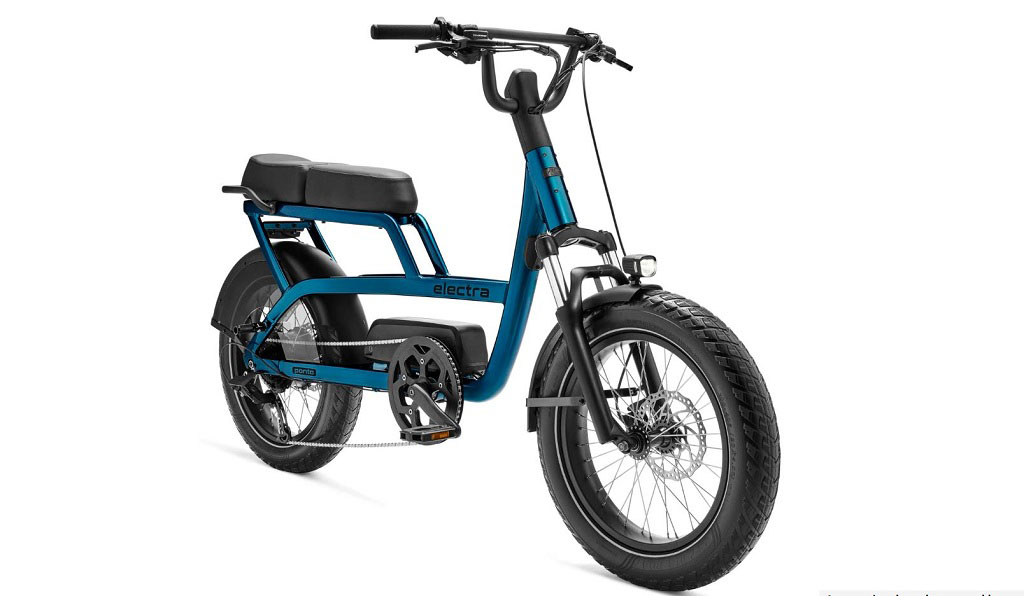

Electra is the brand name for Trek’s “Lifestyle and Leisure” bicycle and e-bike offshoot. They have just released their first moped-style e-bike with throttle control, the Ponto Go! This shows how popular this type of machine is becoming, especially among young people. It has a bench seat and footrests and a weight capacity of 350 pounds.
With its 4-inch fat tires and front suspension, it also looks like a comfortable way to get around, for both driver and passenger. The recommended height range is 4’10” to 6’2″ and it is a Class 3 e-bike that can reach 20 mph with just throttle and 26 mph with pedal assist. It features a 750W rear hub motor and a lockable/removable 650Wh battery. There’s also a nod to full-fledged mopeds with rear indicators and brake lights.
It costs $2,699 and is available now.
Addmotor brings affordable e-trike onto the market
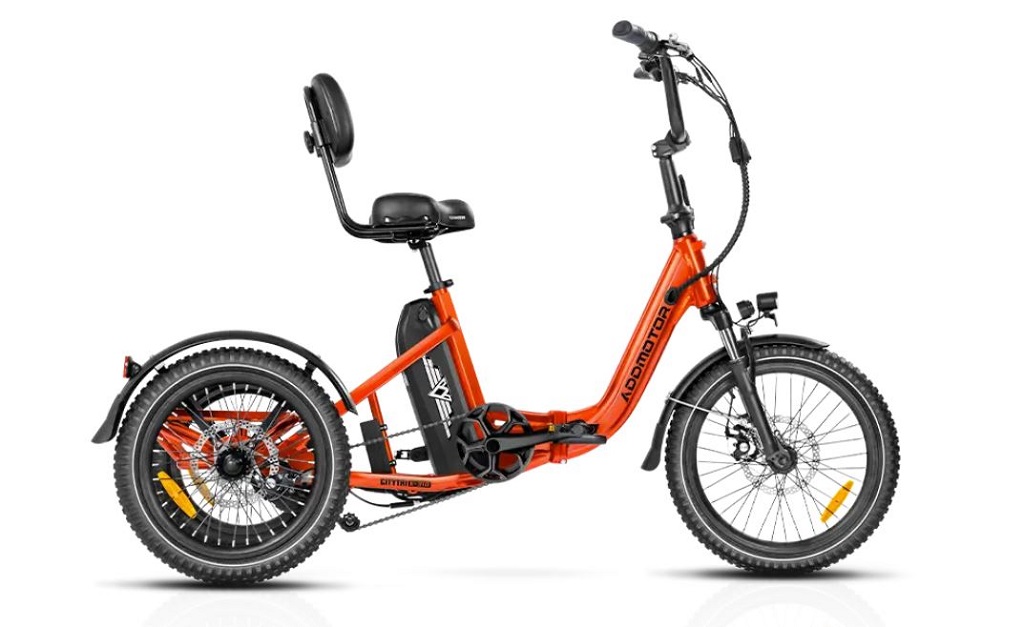

Electric trikes are clearly a coming trend; Lectric and Rad Power released budget models not long ago. Now comes Addmotors CityTri E-310 tricycle – The company already has many e-trikes in its range, but this is their cheapest model yet – it will be available next month for $1999.
In addition, it is a foldable model with a top speed of 20 miles per hour, a rear-drive motor and a 960Wh battery. While it’s more expensive than some of its competitors, its higher speed and smaller wheels should make for a sportier ride – but be careful of tipping over!
Mihogo Mini Crowdfunds
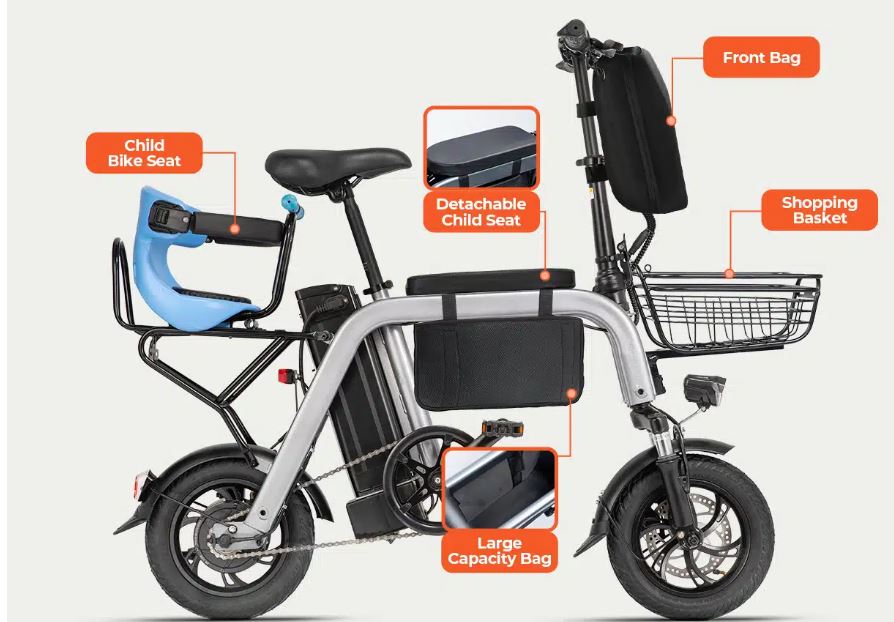

The Mihogo Mini is a small bike that is designed to do as much as a small e-bike can. The designers have crammed the ability to attach a bag and basket at the front, a seat to the main frame and another child seat at the rear. It also features foldable handlebars and has a large 768Wh battery with a claimed top speed of 35km/h. The claimed weight is 19kg (which isn’t surprising considering it appears to have a sturdy steel frame).
Up to 50% before launch Crowdfunding discounts are available, so the bike starts at $399 and is expected to ship in October 2023 – although of course the usual buyer precautions apply when purchasing via a crowdfunding campaign.
Is a nationwide binding safety standard for micromobility batteries imminent?
The Consumer Product Safety Commission regulates what standards consumer products should meet to ensure public safety, and its current public hearing is on the safety of lithium-ion batteries – and of course it’s this battery chemistry that’s z – Bicycles and e-scooters in the USA and around the world.
As reported by News from the bicycle trade and the industrythe Commission has heard from both Human-powered solutions And People for bikes. It’s a very detailed report, but two main points seem to stand out.
First, there was widespread agreement among the experts in attendance that, as Mike Fritz of Human Powered Solutions put it, “mandatory safety standards to govern the integrity of lithium-ion battery packs are urgently needed.” “At a minimum, UL 2271 must come into effect immediately.”
Second, future regulations need to be adequately enforced – whether in monitoring imports or examining what can be done about the many potentially substandard batteries that already exist.
Van Moof bankruptcy – The saga continues
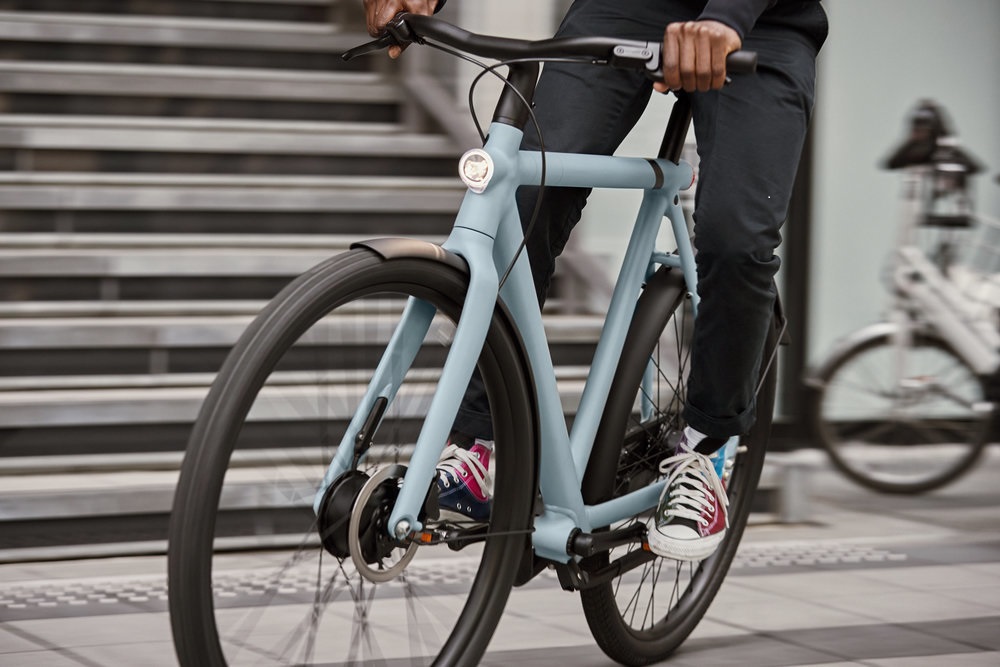

Over the last few weeks we have been following the twists and turns following the bankruptcy of global urban e-bike brand Van Moof.
It looked like a savior might be on the horizon in the form of micromobility This online report tells us now:
“Micromobility, the global shared micromobility operator, has dropped out of the race to relaunch VanMoof after the Dutch e-bike brand went bankrupt last month.”
This may not be the last time we’ll cover it, as the report adds: “Online reports suggest that a number of other parties are in the running to acquire VanMoof, including Trek, KKR, which recently acquired the Accell Group has taken over, and an unnamed German company.” .
“Some believe VanMoof’s original founders, Taco and Ties Carlier, may be planning to bring about a rebirth of the brand with outside investment.”
The new bicycle boxes from Riese and Muller can be reused up to 30 times


Cycling Industry News reports about a new type of bicycle box that the German premium e-bike manufacturer Riese und Müller is introducing:
“The BikeBox from circular logistics, co-developed by Riese & Müller, is made entirely of polypropylene, a material that is very durable, resilient, easy to recycle and reusable up to 30 times.” This saves around 80% CO2 compared to conventional packaging. The reusable BikeBoxes are the same size as the boxes previously used. After the eBikes have been removed, the BikeBoxes can be folded up quickly and easily so that they can be sent back via the usual transport routes. This reduces the amount of waste generated by 95%, which corresponds to a saving of around 880 tonnes of cardboard per year.”
Reader interactions
![]()
![]()
